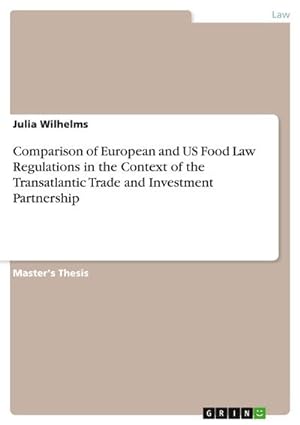julia wilhelms (3 Ergebnisse)
Suchfilter
Produktart
- Alle Product Types
- Bücher (3)
- Magazine & Zeitschriften (Keine weiteren Ergebnisse entsprechen dieser Verfeinerung)
- Comics (Keine weiteren Ergebnisse entsprechen dieser Verfeinerung)
- Noten (Keine weiteren Ergebnisse entsprechen dieser Verfeinerung)
- Kunst, Grafik & Poster (Keine weiteren Ergebnisse entsprechen dieser Verfeinerung)
- Fotografien (Keine weiteren Ergebnisse entsprechen dieser Verfeinerung)
- Karten (Keine weiteren Ergebnisse entsprechen dieser Verfeinerung)
- Manuskripte & Papierantiquitäten (Keine weiteren Ergebnisse entsprechen dieser Verfeinerung)
Zustand Mehr dazu
- Neu (3)
- Wie Neu, Sehr Gut oder Gut Bis Sehr Gut (Keine weiteren Ergebnisse entsprechen dieser Verfeinerung)
- Gut oder Befriedigend (Keine weiteren Ergebnisse entsprechen dieser Verfeinerung)
- Ausreichend oder Schlecht (Keine weiteren Ergebnisse entsprechen dieser Verfeinerung)
- Wie beschrieben (Keine weiteren Ergebnisse entsprechen dieser Verfeinerung)
Einband
- alle Einbände
- Hardcover (Keine weiteren Ergebnisse entsprechen dieser Verfeinerung)
- Softcover (3)
Weitere Eigenschaften
- Erstausgabe (Keine weiteren Ergebnisse entsprechen dieser Verfeinerung)
- Signiert (Keine weiteren Ergebnisse entsprechen dieser Verfeinerung)
- Schutzumschlag (Keine weiteren Ergebnisse entsprechen dieser Verfeinerung)
- Angebotsfoto (3)
Sprache (1)
Preis
- Beliebiger Preis
- Weniger als EUR 20 (Keine weiteren Ergebnisse entsprechen dieser Verfeinerung)
- EUR 20 bis EUR 45
- Mehr als EUR 45 (Keine weiteren Ergebnisse entsprechen dieser Verfeinerung)
Gratisversand
- Kostenloser Versand nach USA (Keine weiteren Ergebnisse entsprechen dieser Verfeinerung)
Land des Verkäufers
Verkäuferbewertung
-
Helena Augusta
Verlag: Oxford University Press Inc, 2022
ISBN 10: 0190875305 ISBN 13: 9780190875305
Sprache: Englisch
Anbieter: moluna, Greven, Deutschland
EUR 39,51
EUR 48,99 für den Versand von Deutschland nach USAAnzahl: Mehr als 20 verfügbar
In den WarenkorbKartoniert / Broschiert. Zustand: New. Über den AutorJulia Hillner is Professor of Ancient History at the Bonn Center for Dependency and Slavery Studies, Rheinische Friedrich-Wilhelms-Universitaet Bonn. She is the author of Prison, Punishment and Penance in Late Antiq.
-
Comparison of European and US Food Law Regulations in the Context of the Transatlantic Trade and Investment Partnership
Verlag: GRIN Verlag, GRIN Verlag Feb 2015, 2015
ISBN 10: 365687347X ISBN 13: 9783656873471
Sprache: Englisch
Anbieter: buchversandmimpf2000, Emtmannsberg, BAYE, Deutschland
Taschenbuch. Zustand: Neu. Neuware -Master's Thesis from the year 2014 in the subject Law - Comparative Legal Systems, Comparative Law, grade: 1,3, University of Bonn, course: Lebensmittelrecht, language: English, abstract: In July 2013, negotiations concerning the Transatlantic Trade and Investment Partnership (TTIP) were initiated. Objective of the negotiations is the generation of a Free Trade Agreement (FTA) between the United States (U.S.) and the European Union (EU) to promote trade by reducing trade barriers, including tariff and non-tariff ones. In order to achieve this goal, several issue barriers have to be addressed, inter alia concerning non-tariff barriers including regulatory differences in the sectors of agriculture and food production. While the U.S. and the EU both have high standards concerning the consumer protection and food safety assessment, differences in the basic principle and implementation persist. Both countries pursue an agreement that follows the respective principles and still provides effective trade stimulation. However, based on the rooted differences in the particular food safety systems, challenges are inevitable. The objective of this study is the presentation of the U.S. and EU food safety system as well as special cases highlighting the differences between both systems in terms of risk assessment, prevention, responses and risk communication. The different factors are analyzed both theoretically and on the basis of practical examples. Additionally, the different matters are described in the context of the TTIP to identify issues that may complicate the negotiations. Possibilities to resolve those issues are discussed and recommendations for positive outcomes given.BoD - Books on Demand, In de Tarpen 42, 22848 Norderstedt 84 pp. Englisch.
-
Comparison of European and US Food Law Regulations in the Context of the Transatlantic Trade and Investment Partnership
Anbieter: AHA-BUCH GmbH, Einbeck, Deutschland
Taschenbuch. Zustand: Neu. Druck auf Anfrage Neuware - Printed after ordering - Master's Thesis from the year 2014 in the subject Law - Comparative Legal Systems, Comparative Law, grade: 1,3, University of Bonn, course: Lebensmittelrecht, language: English, abstract: In July 2013, negotiations concerning the Transatlantic Trade and Investment Partnership (TTIP) were initiated. Objective of the negotiations is the generation of a Free Trade Agreement (FTA) between the United States (U.S.) and the European Union (EU) to promote trade by reducing trade barriers, including tariff and non-tariff ones. In order to achieve this goal, several issue barriers have to be addressed, inter alia concerning non-tariff barriers including regulatory differences in the sectors of agriculture and food production. While the U.S. and the EU both have high standards concerning the consumer protection and food safety assessment, differences in the basic principle and implementation persist. Both countries pursue an agreement that follows the respective principles and still provides effective trade stimulation. However, based on the rooted differences in the particular food safety systems, challenges are inevitable. The objective of this study is the presentation of the U.S. and EU food safety system as well as special cases highlighting the differences between both systems in terms of risk assessment, prevention, responses and risk communication. The different factors are analyzed both theoretically and on the basis of practical examples. Additionally, the different matters are described in the context of the TTIP to identify issues that may complicate the negotiations. Possibilities to resolve those issues are discussed and recommendations for positive outcomes given.




